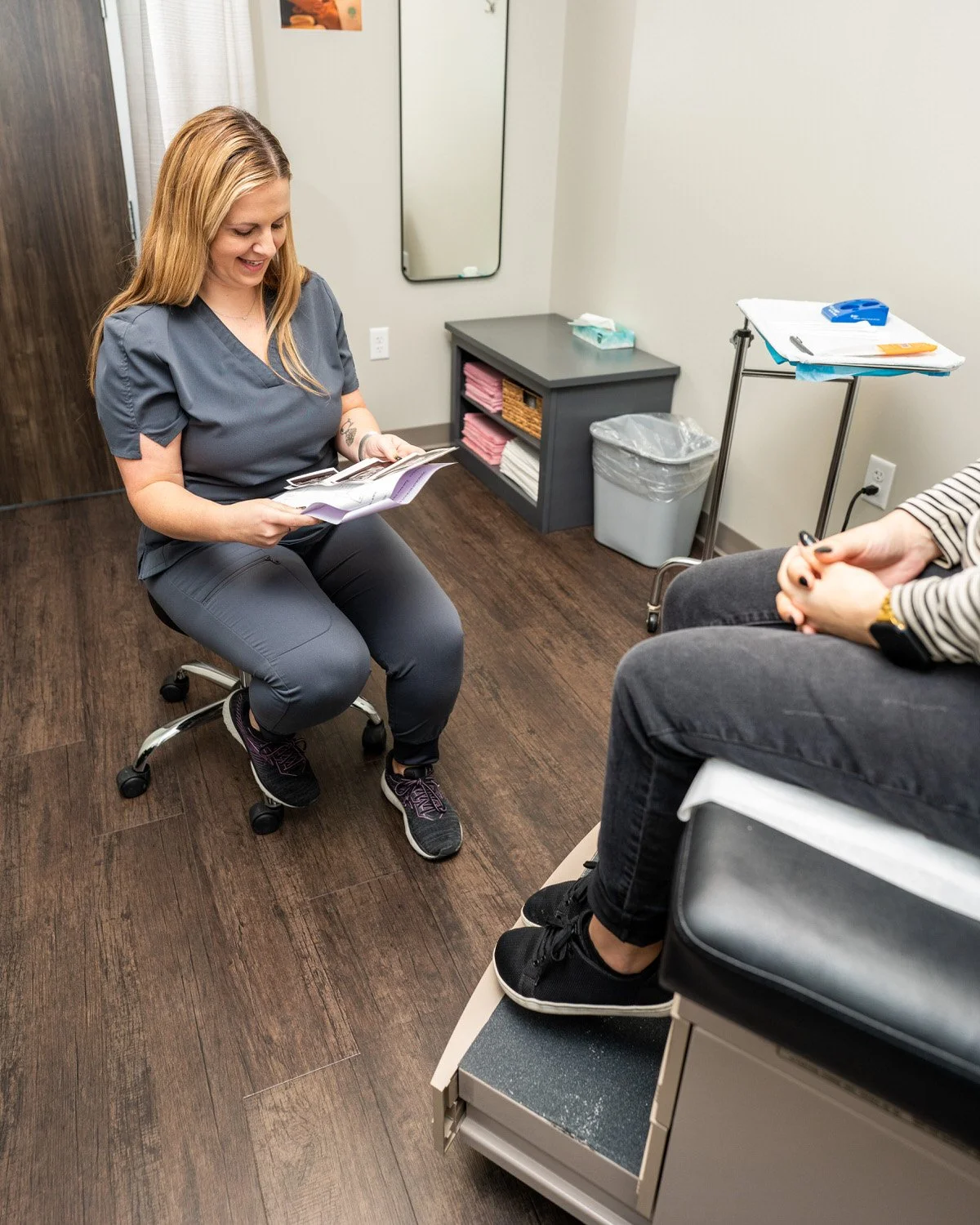Polycystic Ovarian Syndrome
Willow OBGYN
Obstetrics & Gynecology located in San Antonio, TX
One in 10 women of childbearing years suffers from polycystic ovary syndrome (PCOS). As a highly skilled and caring OB/GYN, Kelly Morales, MD, diagnoses and treats PCOS in women living in and around San Antonio. If you think you may have PCOS, call or book an appointment online for friendly and professional treatment.
Polycystic Ovarian Syndrome (PCOS) Q & A
What is PCOS?
Polycystic ovary syndrome (PCOS), sometimes called polycystic ovarian syndrome, is a common women’s health problem caused by hormone imbalances. PCOS often causes irregular menstrual periods and may also cause many small cysts to grow on your ovaries.
What are the symptoms of PCOS?
Common signs and symptoms of PCOS include:
Skipping periods or having fewer than eight menstrual periods in a year
Frequent periods that come every 21 days or more often
Excess hair on your face, chin, or other areas where men typically have hair
Thinning hair on your scalp
Weight gain or difficulty maintaining a healthy weight
Acne
Ovarian cysts
Who gets PCOS?
Between 5-10% of women aged 15-44 have PCOS. Although this condition can start any time after puberty, most women find out they have PCOS in their 20s and 30s, when they begin to have trouble getting pregnant.
You may be at higher risk of getting PCOS if you’re obese or have a mother, sister, or aunt with PCOS.
How does PCOS affect fertility?
PCOS is among the most common causes of infertility in women, but it’s treatable. The hormone imbalance associated with PCOS may prevent you from ovulating regularly, which makes it hard to get pregnant.
However, Dr. Morales can help. If you have PCOS and want to get pregnant, she discusses your best treatment options for a successful pregnancy. This may include weight loss management and controlling your blood sugar levels.
How does Dr. Morales diagnose and treat PCOS?
Dr. Morales starts with a thorough physical and pelvic exam and reviews your medical history. If she suspects you have PCOS, she may check your hormone levels with a blood test or look for ovarian cysts with a pelvic ultrasound to confirm the diagnosis.
Though there’s no cure for PCOS, Dr. Morales creates a personalized treatment plan to manage your symptoms. Depending on your situation, treatment may include:
Lifestyle changes like diet and exercise
Medicines to balance your hormones
Medicines to help you ovulate (if you want to get pregnant)
If you think you may have PCOS, call the office of Kelly Morales, OB/GYN, or book an appointment online today.
““Dr. Morales is an excellent doctor. She is patient and perceptive, she listens to all of my concerns.
She takes the time to address my concerns and provides me with a detailed explanation for the “the cause and effect” of my particular situation. I respect her professional assessments and opinions, and I always leave her office feeling assured that my health is entrusted to the right hands. Thank you, Dr. Morales, I feel confident of your diagnosis.””

















